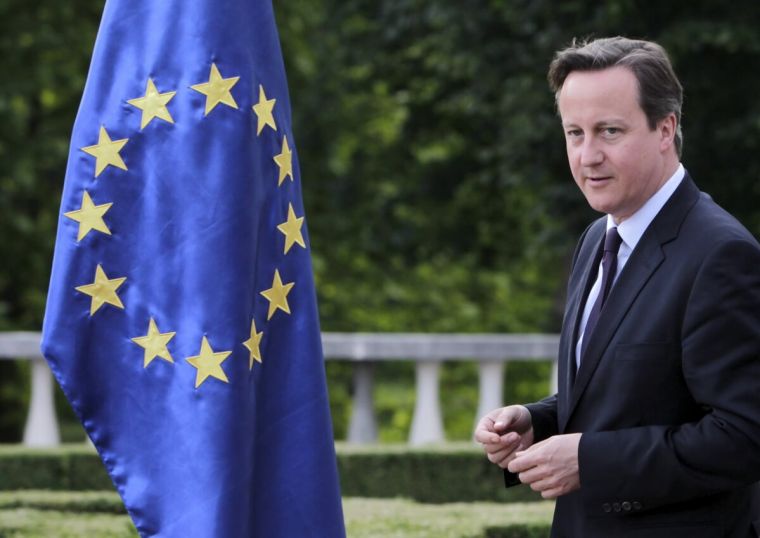Cameron to make case for renegotiation at EU summit in Brussels

Prime Minister David Cameron will pitch his renegotiation of Britain's relationship with the European Union at a summit on Thursday as leaders of the 28-member bloc grapple with an influx of migrants and the prospect of a Greek default.
Just over 42 years since Britain first joined the precursor to the EU, Cameron is trying to win a new settlement before holding a referendum on membership by the end of 2017.
He is due to set out his intentions at dinner with other EU leaders in Brussels, though diplomats said that the leaders were juggling so many crises that the exact timing of Cameron's pitch was uncertain.
"It's the first EU summit where renegotiation of the UK's relationship with the EU is formally on the agenda," Cameron said in remarks released by his Downing Street office.
"It will take us another step closer to addressing the concerns that the British people have about the EU. And closer to changing the status quo for the better and then giving the British people a say on whether the UK should stay in or leave the EU."
The summit marks the formal start of Britain's latest renegotiation of its ties with Europe, the world's largest economic bloc, though Cameron is expected only to give a brief outline of his vision for the renegotiation.
Leaving the European Union was once considered far fetched: Two decades ago, British politicians were arguing about whether to join the euro and talk of an exit was the reserve of sceptics on the fringes of both major British parties.
But under pressure from Eurosceptics in his Conservative party and the rise of the anti-EU UKIP party during his first term as prime minister, Cameron in 2013 promised a referendum if he was re-elected. He won a majority seven weeks ago.
EU leaders including Germany's Angela Merkel want to keep Britain, the EU's second-largest economy, in the bloc.
But there is frustration in many European capitals that offshore Britain appears ambivalent towards its EU membership and keeps trying to haggle over the rules.
CAMERON'S GAMBLE
Cameron, who says he wants to stay in a reformed EU but that he would not be heartbroken to leave, has met almost all of the EU's 27 other leaders since the May 7 election in an attempt to explain his plans.
EU leaders will likely note his intentions, a step that allows officials to begin to discuss the details of British demands which include: limits on benefits for workers from other EU states; guarantees that the euro zone will not impose rules on non-euro members such as Britain; more aggressive foreign trade deals; and reforms to deepen the single market.
Cameron has been advised he would need to change the EU treaty for limits on migrant benefits. Since opening up the EU's founding treaties would take years, he may have to settle for a glorified promise to change rules in the future.
In a sign of Brussels gearing up to deal with Cameron's demands, Jean-Claude Juncker, head of the executive European Commission, appointed one of the most senior Britons in the EU civil service, Jonathan Faull, to head a new Task Force to deal with "strategic issues related to the UK referendum".
Much of the political negotiation between Cameron and other EU states will pass through Donald Tusk, the former Polish prime minister who chairs the Council of EU leaders, but Juncker and the Commission will have a vital role in drafting legislation.
EU leaders are expected to return to the so-called "British question" at a summit in December, though diplomats caution that the process could take many months or longer to conclude.
In 1975, British voters decided 67-33 percent to stay in the European Economic Community. Opinion polls show British voters are more evenly divided now, with a little over half in favour of membership.
British opponents of the EU say that the euro is flawed and that the EU is a poorly run elitist project that is slipping far behind the United States and Asia.
Britain's allies say leaving the world's biggest trading block would be a foolhardy step that would torpedo Britain's global clout and expose its financial centre to rules over which it had no influence.











